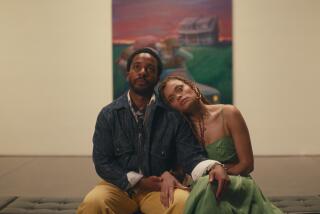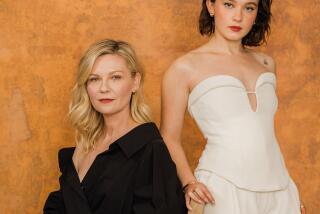‘Aggie,’ art and social justice
The documentary “Aggie” begins with the announcement that Agnes Gund, president emerita of New York’s Museum of Modern Art, has sold one of the most sought-after Roy Lichtenstein paintings, “Masterpiece,” from her private collection for $165 million. And she has donated $100 million of the proceeds to start the Art for Justice Fund to address criminal justice reform, including ending mass incarceration.
So how did we get here? The solidly made film features not only archival interviews and speeches by “Aggie” but new interviews of Gund by artists, colleagues and family to get a rounded picture of a remarkable woman. There’s plenty of insight into the forces that shaped her, from an unenthusiastic father and her discomfort in the traditional role of a housewife in Cleveland, to taking control of her own reproductive destiny in order to break away and developing a deep affinity with artists and their work. She becomes known for her remarkable eye and early support of artists who would become “important.”

Art collector, philanthropist and social activist Agnes Gund is profiled in the documentary “Aggie.”
But beyond her grasp of art, she became a deeply concerned citizen, an LGBTQ+ ally active in social-justice causes. As in the art world, she’s no tourist in her activism — she commits fully and intelligently. When New York City public school funding was slashed in the ‘70s, she founded Studio in a School, which has since taught art to more than a million young students. The Art for Justice Fund has already notched impressive achievements.
We’re guided through her life by the skillful filmmaking of “Aggie’s” daughter, Catherine Gund. The director knows when to help the audience with visual references (this reviewer certainly wasn’t familiar with most of the artists referenced, so was grateful for those aids). She moves the narrative backward and forward in time without losing the viewer, and the use of friends to interview the subject proves inspired.
“Aggie” is a well-made portrait of an admirable woman you come away feeling you’d like to meet.
'Aggie'
Not rated
Running time: 1 hour, 32 minutes
Playing: Starts virtual cinemas, including Laemmle and Alamo Drafthouse
More to Read
The complete guide to home viewing
Get Screen Gab for everything about the TV shows and streaming movies everyone’s talking about.
You may occasionally receive promotional content from the Los Angeles Times.







